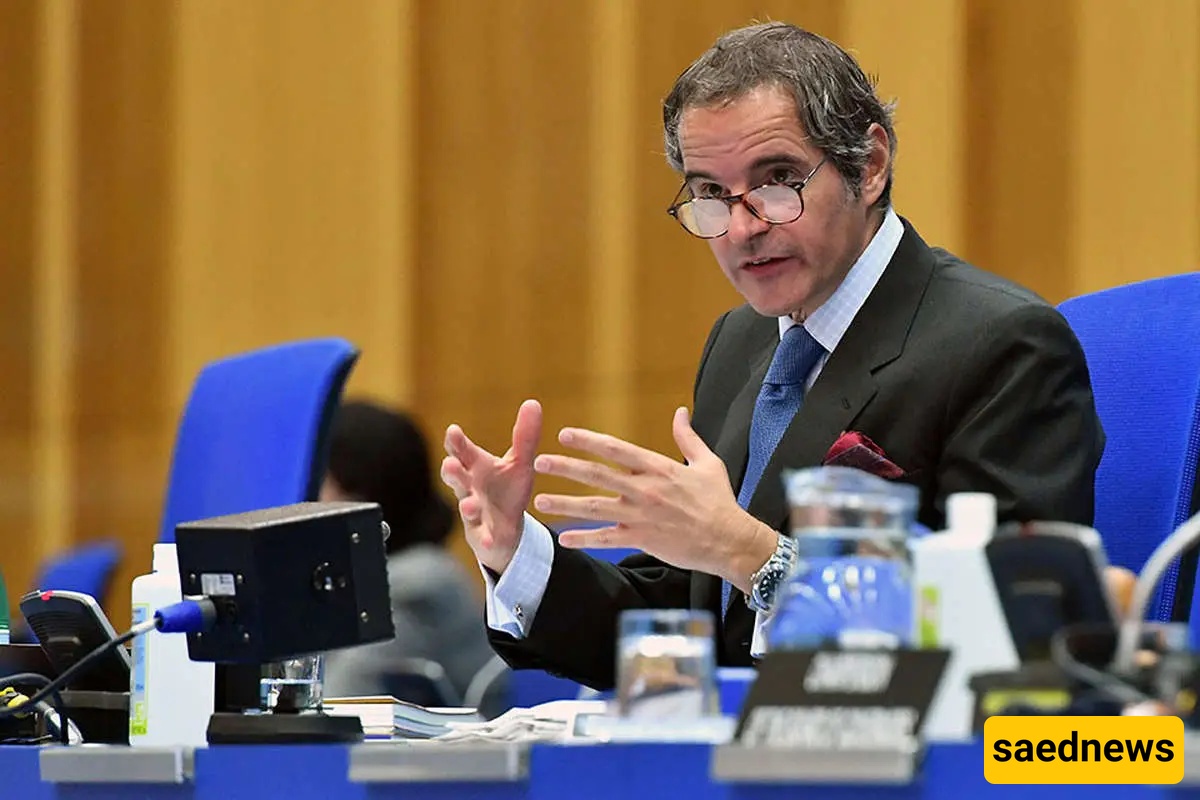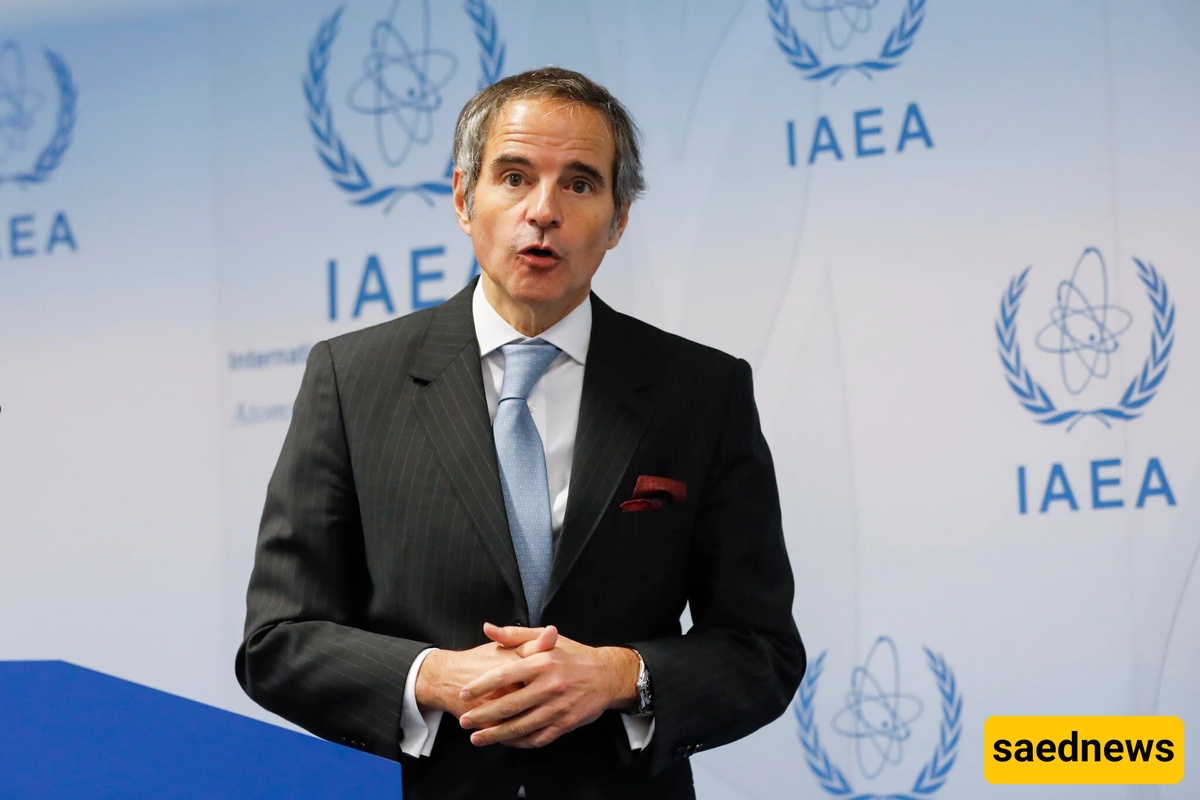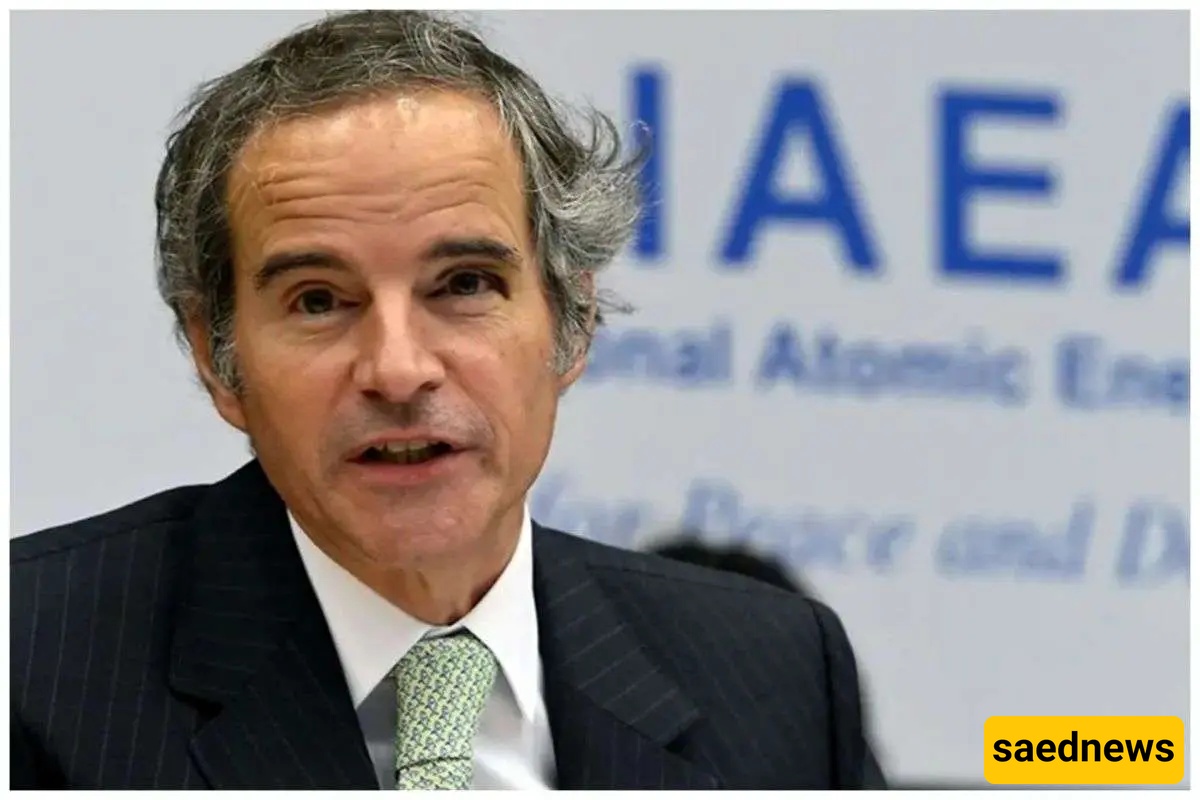SAEDNEWS: In a strikingly cautious yet controversial statement, Rafael Grossi, Director-General of the International Atomic Energy Agency (IAEA), claimed that the world stands at the brink of nuclear unraveling unless diplomacy prevails. His remarks, delivered during an emergency board meeting following U.S.

According to Saed News, Rafael Grossi, the Director-General of the International Atomic Energy Agency (IAEA), warned on Monday that the global nuclear non-proliferation regime—long the backbone of international security—faces collapse if diplomacy fails to de-escalate the recent surge in hostilities. His statement came during an emergency session of the IAEA Board of Governors convened to assess the ramifications of recent American and Israeli attacks on Iranian nuclear sites.

Grossi, often accused by Iranian officials of fueling aggression through politically biased reporting, reiterated his call for diplomatic channels to remain open. “If not,” he warned, “violence and destruction could escalate to unimaginable levels.”
Notably absent from his speech was any direct condemnation of the recent missile strikes on Iranian nuclear infrastructure. Instead, Grossi focused on the broader implications of the ongoing conflict. “Iran, Israel, and the Middle East need peace,” he said, urging all parties to return to the negotiating table. He called for unrestricted access for IAEA inspectors to Iranian facilities, particularly to verify enriched uranium stockpiles, including the 400 kilograms enriched to 60 percent.
However, following the aggressive assaults by the United States and Israel, Iran has already moved key nuclear materials and equipment to undisclosed secure locations. Grossi acknowledged a letter from Iran’s Foreign Minister Abbas Araghchi dated June 13, which stated Tehran would take “special measures” to safeguard its nuclear assets. Grossi responded by stressing the need for transparency under existing safeguard agreements and expressed the IAEA’s readiness to cooperate.

He further claimed that “factual clarification” is a prerequisite for any potential agreement. “This is only achievable through IAEA inspections,” he said. He called for a cessation of hostilities to allow inspectors to re-enter facilities for assessment. “This is possible,” Grossi emphasized. “Our inspectors remain in Iran and are prepared to resume work.”
Grossi detailed visible damages inflicted on Iran’s key nuclear sites. He confirmed the use of bunker-busting munitions at Fordow—home to Iran’s 60% uranium enrichment—causing visible crater formations, and acknowledged that no entity, including the IAEA, could yet fully assess the underground impact due to the sensitive nature of centrifuge technology.
At Isfahan, cruise missiles struck facilities involved in uranium conversion processes. Tunnel entrances used for storing enriched material were also reportedly hit. Similarly, the Natanz enrichment site, including its Fuel Enrichment Plant, sustained direct hits from penetrative ordnance. Despite the damage, Iran has assured the agency that no increase in radiation levels has been detected outside the affected areas.
“The situation at other sites remains unchanged,” Grossi reported, adding that no new attacks had been documented since Sunday morning. He emphasized the need for continued communication between Iran and the IAEA’s Emergency Operations Center.
Grossi thanked Iranian officials for ensuring the safety of IAEA inspectors still stationed in the country and acknowledged the logistical support of the UNHCR and the UN’s security apparatus. Yet, despite detailing extensive damage to Iranian nuclear infrastructure, he refrained from rebuking the perpetrators.
“Armed attacks on nuclear facilities must never occur,” Grossi said, warning of the catastrophic consequences of radioactive material release. He called for “maximum restraint,” noting that military escalation imperils both civilian lives and diplomatic prospects.
While reiterating past statements that Iran is not pursuing nuclear weapons, Grossi insisted that diplomacy remains the only viable path to ensuring long-term guarantees. “I’m ready to travel to Iran immediately,” he said, underscoring the IAEA’s role in facilitating peaceful use of nuclear technology.
Grossi concluded with a stark appeal to global unity: “We may disagree on the causes of this crisis,” he said, “but we all agree on two things: we must avoid a nuclear incident, and we do not want more nuclear-armed nations. The IAEA is the vessel through which we can still work together.”
He also told the UN Security Council that the agency stands prepared to help end the current military confrontation. “The IAEA belongs to all of us,” he said. “And regardless of our individual positions, one truth remains: a world with more nuclear weapons is not a safer world.”

